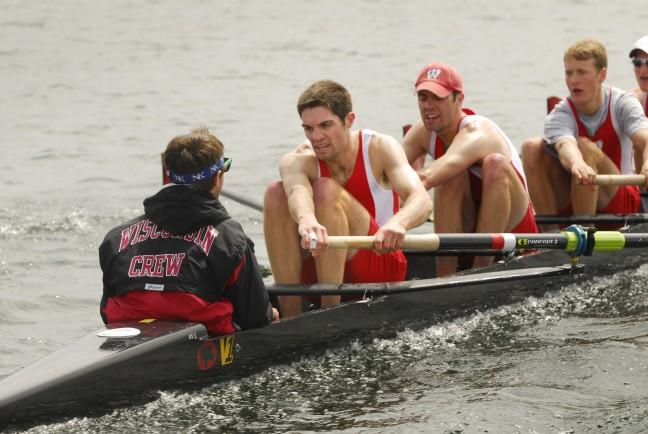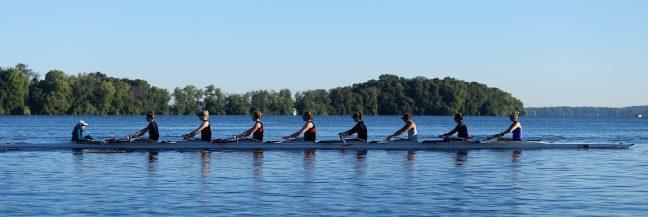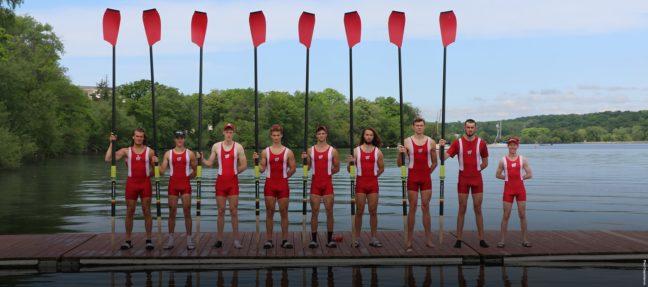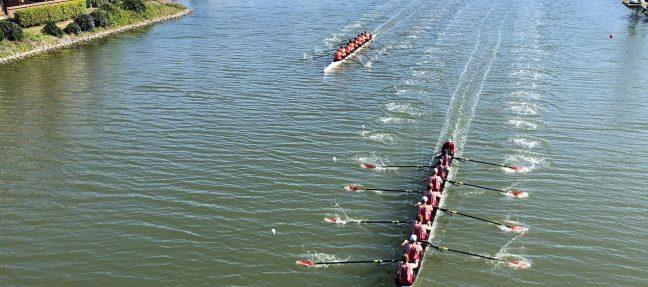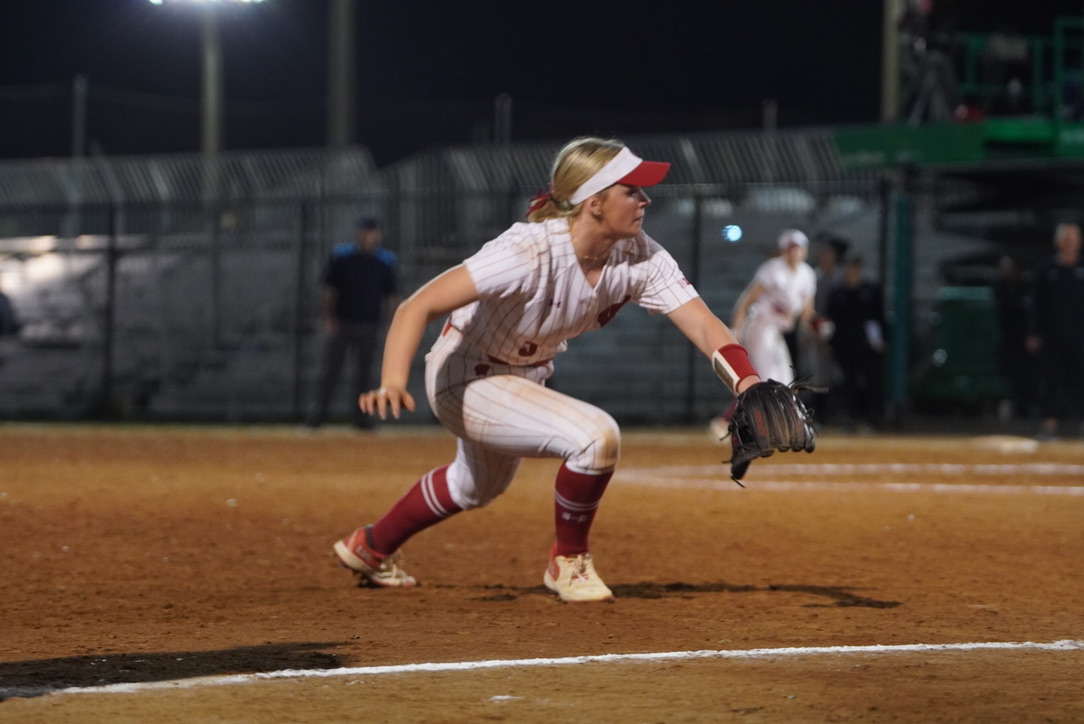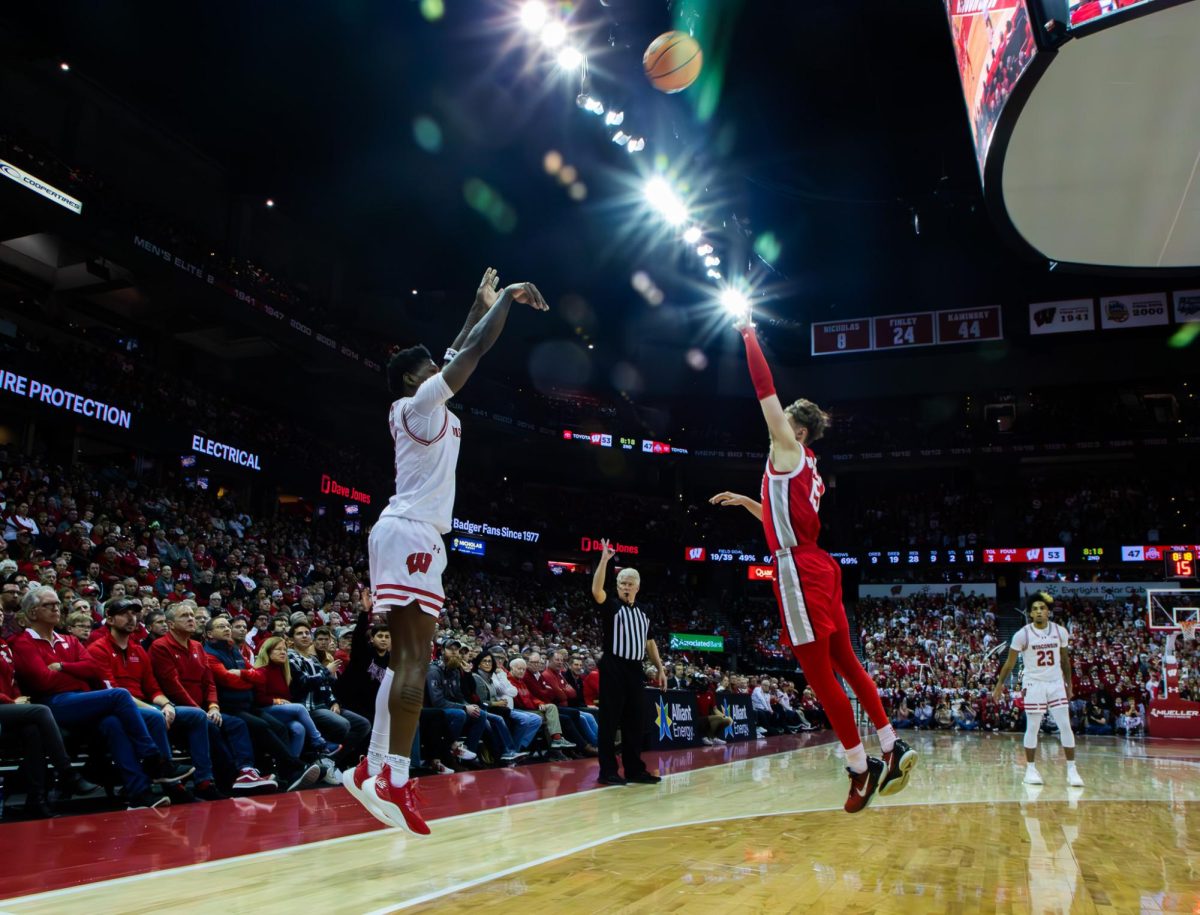After falling .3 seconds short of a bronze medal in the 2012 Olympics in London as part of the United States men’s eight team, former University of Wisconsin rowers Ross and Grant James are in the process of making a return to the world’s biggest stage for the 2016 Olympics in Rio.
The twin brothers attended UW from 2005-09 and walked on the men’s rowing team. They were part of the varsity eight boat that won a national championship in 2008 and also won gold at the World Rowing Under-23 Championships that same year.
The Badger Herald caught up with Ross James to talk about how they got started rowing, the journey back to the Olympics and what it’s like to row with your twin brother for a decade.
The Badger Herald: Going back to when you started rowing at Wisconsin, you were walk-ons to the sport, what got you interested? They basically send out recruiting letters to everyone who is tall. Is that what happened for you?
Ross James: I did get one of those letters. It was a postcard in the mail that said if we were over 6-foot-2, we should try rowing, and we both thought “let’s try it.” At the time, I didn’t even known what rowing was — it was my first introduction. It was definitely something my brother and I fell into. We were good at it and we just kept getting better. Each step took us closer to another level and we had a great experience.
BH: Can you talk about what it’s been like rowing with your twin brother for this long?
RJ: Rowing with my brother has been a terrific experience, especially in college when we were just walk-ons, we had someone to compete against always.
It was nice to have family around because most people never have family around when they’re training and you rarely have the chance to go home. But it’s also difficult at times. If you have a bad row with a teammate, you just think, “We missed this one. Let’s regroup for the next one.”
When you’re siblings, there’s no barriers, so you immediately go to anger. We’ve had some heated moments in the pairs, and anybody would. It’s been good times and bad times, but right now, we are on the upswing.
BH: Back to present day, what does the time between now and the actual trials look like for you then?
RJ: We have about eight weeks, and we’ve set up the schedule to build a little bit of progression into racing again. You never want to red line [go full speed] all the time because that will burn you out. You have to try and peak at the right time, so right now is more longer, distance-based, aerobic and fitness-oriented training. As we get closer, we’ll start adding in a little more intensity and then just before [the Olympics] you start really cranking out some of the hard stuff to really prep for racing.
BH: Have there been any major differences in preparation from your first trip to the Olympics in 2012 and now?
RJ: Absolutely. I think the process last time was a lot different than this time, and that’s only natural since there’s a change of coaches, administration and athletes. It will never be the same. Last time, it was a similar situation in which we still had to qualify in the eight, but it was run in a different manner and so you just kind of have to work with what you have.
BH: Is it difficult not getting complacent or overconfident this time around?
RJ: Your perspective is much different and it’s very interesting. The first time around, you just don’t understand the gravity of the situation. Once you go, you realize that all the other races you did were child’s play compared to the big stage.
The second time around you’ve gotten over the goal of getting there and the goal is now to win a medal. When that’s the goal, the pressure builds because you know how difficult it is to accomplish.
BH: Could you describe what that experience in London was like?
RJ: London was great. It was quite the experience standing there at the closing ceremonies after it was all said and done, because I knew I had to try again. Knowing I had to go through four more years just to try this again. We came in fourth in London, and I knew we were capable of winning a medal. We thought we needed one more shot.
BH: When you were looking to the next four year, was it difficult knowing you had to do everything all over again?
RJ: Rowing is a sport of delayed gratification. You have to take it one year at a time. The long term investment could drive you nuts. We just approached it one week at a time, and if you can survive that week, you’ll build it up over time. It’s daunting, but you’re encountering new experiences.
BH: Going back to around the time when you first started rowing, did you ever think that something like this would be even close to attainable?
RJ: No. Never. Even as a kid, the Olympics was something you just watched on TV. I didn’t have any physical connection to it. And even as I was rowing in college, it wasn’t something that I thought, “Winning a gold medal is my goal.” It was just trying to be the best at where I was.
In college, we had a great opportunity that led us to a national championship. Then the next step from that was the Under-23s, which is like the minor leagues of rowing, and we won a world championship there. The Olympic team was next.
As the years go by, the intensity and the pressure builds, and that’s when you start realizing that this is for real. But you don’t actually get it until you’re there. It’s much bigger than you think.








